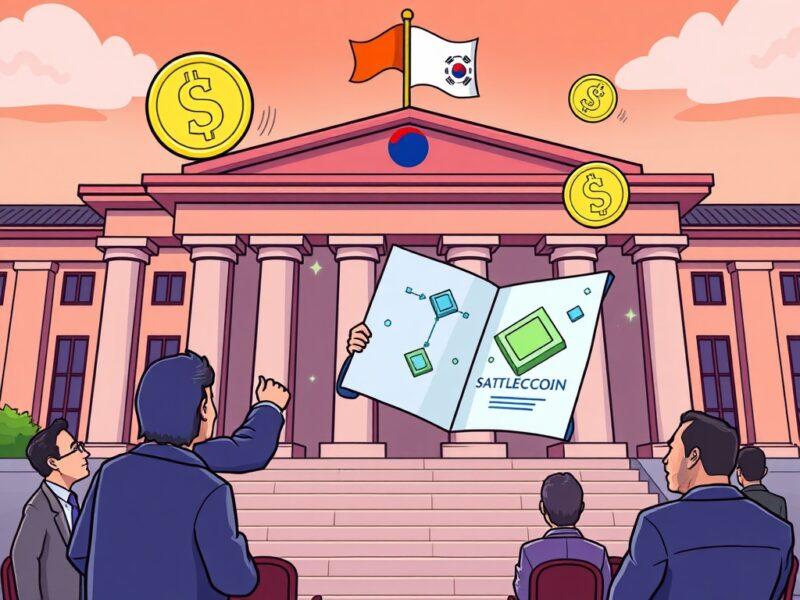South Korea’s Pioneering Leap: The Impact of the Stablecoin Bill on Digital Asset Regulation
South Korea is poised for a groundbreaking transformation in digital asset regulation through the introduction of a comprehensive stablecoin bill. Spearheaded by the Democratic Party of Korea (DPK), this initiative aims to establish a clear framework for stablecoins pegged to the Korean Won, ensuring stability and safeguarding users in the crypto space.
Understanding the South Korea Stablecoin Bill
The forthcoming stablecoin bill, championed by DPK legislator Ahn Do-geol, focuses on overseeing the issuance, circulation, and supervision of Korean Won-pegged stablecoins. Unlike previous digital asset proposals, this bill is tailored to address the specific challenges of stable digital assets, highlighting compliance, market integrity, and transparency.
Key Aspects of the Bill
The bill will outline criteria for issuing stablecoins, establish regulations for their circulation within the South Korean economy, and create a regulatory framework to ensure compliance. This targeted approach aims to create a secure environment for stablecoin operations, mitigating risks and enhancing consumer protection.
Significance of the Bill
The introduction of the South Korea stablecoin bill marks a pivotal moment for the global digital asset landscape:
- Customer Protection: The bill seeks to safeguard investors and users by promoting transparency and rigorous oversight, fostering trust in stablecoins and the broader digital asset ecosystem.
- Financial Stability: By responsibly integrating stablecoins into the financial system, the bill aims to promote stability and prevent systemic risks in the national economy.
- Promoting Innovation: Clear regulations can spur innovation by providing legal certainty, encouraging businesses to explore new services built on Korean Won-pegged stablecoins.
- Global Competitiveness: South Korea’s proactive approach positions it as a leader in digital asset adoption, attracting investments and supporting a robust blockchain industry.
Key Players Driving the Policy
Key figures such as Ahn Do-geol and Min Byeong-dug from the DPK, along with Kim Eun-hye of the People Power Party, play a crucial role in shaping the stablecoin bill. Their collaborative efforts underscore bipartisan recognition of the importance of effectively regulating stablecoins.
Challenges and Opportunities
The bill presents challenges in balancing innovation with regulation, defining stability in the digital asset realm, ensuring enforcement capabilities, and addressing cross-border implications. It also presents opportunities for institutional adoption, new business models, increased investor confidence, and global leadership in digital asset regulation.
Global Comparison of Stablecoin Regulation
South Korea’s focused approach to stablecoin regulation aligns with global trends. A comparison with jurisdictions such as the United States, European Union, and the UK reveals a concerted effort to regulate stablecoins effectively and manage associated risks.
Future Outlook
The proposed South Korea stablecoin bill will undergo a rigorous legislative process, shaping the regulatory landscape for stablecoins in the country. Stakeholders in the South Korean crypto space should stay informed and prepare for compliance to navigate the evolving regulatory framework.
Conclusion
The South Korea stablecoin bill represents a significant milestone in the responsible integration of digital assets. By establishing clear guidelines for Korean Won-pegged stablecoins, South Korea aims to lead the way in fostering a secure and innovative digital asset community. This legislative endeavor underscores the country’s commitment to shaping a sustainable and transparent future for stablecoin adoption.


